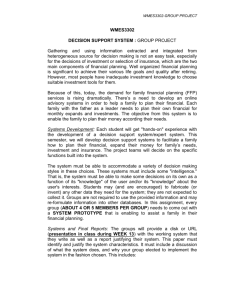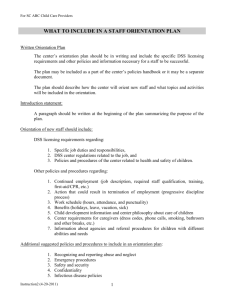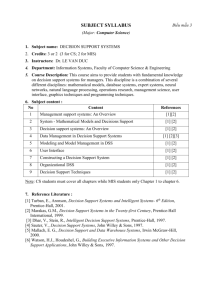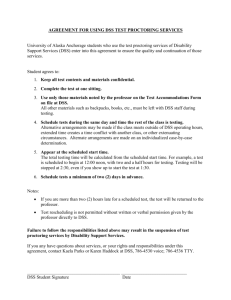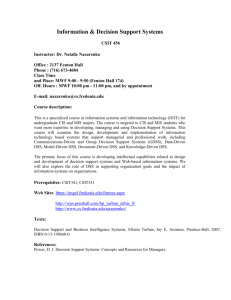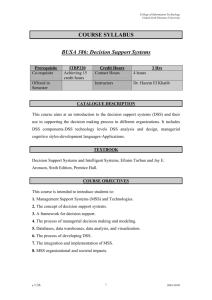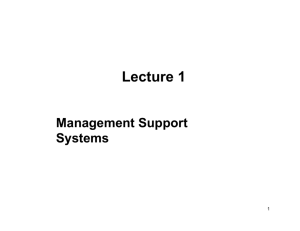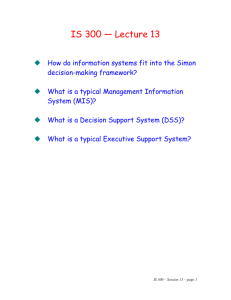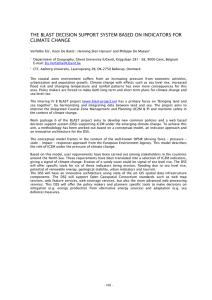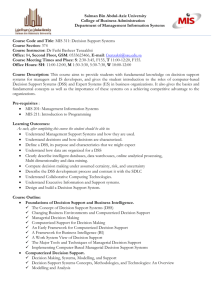(DSS) vs. Information Management (MIS)
advertisement
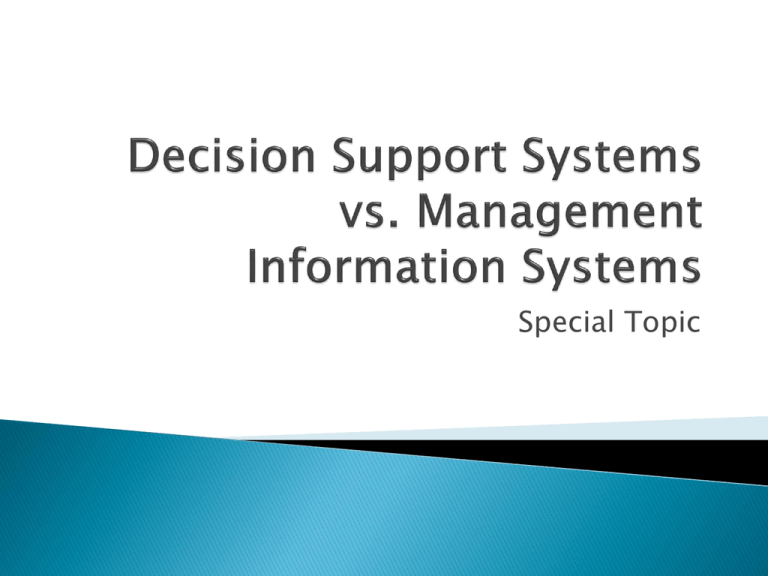
Special Topic TPS PCS ECS DSS MIS EIS What type of IS is WebEX? ◦ Blackboard? ◦ iTunes? ◦ Web for Students ◦ MapInfo ◦ Excel Help Transform ◦ Data Information Manages the Information Provides Reports Reports: ◦ Graphs & Charts- easy to understand ◦ Averages & Summaries more simple more relevant Unique Components 1. Knowledge-base 2. Modeling Scenario modeling Decision modeling Mathematical modeling Simulations Physical (real-world) modeling A communication-driven DSS supports more than one person working on a shared task; A data-driven DSS emphasizes access to and manipulation of internal company data and, sometimes, external data. A document-driven DSS manages, retrieves, and manipulates unstructured information in a variety of electronic formats. A knowledge-driven DSS provides specialized problem-solving expertise stored as facts, rules, procedures, or in similar structures. A model-driven DSSemphasizes access to and manipulation of a statistical, financial, optimization, or simulation model DSS Non-routine decisions MIS Routine decisions ◦ Monthly ◦ Weekly ◦ Daily ◦ Often unique problems Requires data + human knowledge/wisdom Subjective ◦ Best choice is very unclear Operational Easy to automate Often the best choice is obvious DSS Analyze specific problems MIS Performance info ◦ More feedback driven ◦ How are we doing? DSS Interactive Reports Flexible, adaptive reports MIS Periodic Reports Pre-specified, fixed reports DSS Analytical modeling + Knowledge base MIS Processing of data

